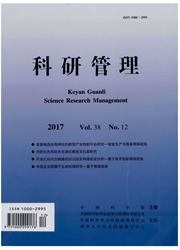

 中文摘要:
中文摘要:
本研究基于权变理论的视角,采用配对问卷调查的方式,探讨了挑战性压力和阻断性压力对敬业度的影响机制及组织支持和核心自我评价的调节作用。实证研究结果发现:挑战性压力正向影响敬业度,阻断性压力负向影响敬业度;组织支持在挑战性压力和敬业度之间发挥正向调节作用,在阻断性压力和敬业度之间的负向调节作用不显著;核心自我评价在挑战性压力和敬业度之间发挥正向调节作用,在阻断性压力和敬业度之间发挥负向调节作用。最后,对研究结论进行讨论分析,并提出了管理对策。
 英文摘要:
英文摘要:
Based on the perspective of the contingency theory and with the aid of the matching questionnaires survey, the paper puts forward the hypothetical contingent model of the relationship between work stress and work engagement. Through the empirical investigation, the results show that: challenge stress has direct positive impact on work engagement while hindrances stress has direct negative impact on work engagement. Moreover, organization support positively affects :he relationship between challenge stress and work engagement. Organization support cannot negatively affect the relationship between hindz'ance stress and work engagement significantly. Core self- evaluations positively affect the relationship between challenge stress and work engagement. Core self- evaluations negatively affect the relationship between hindrance stress and work engagement. Finally, according to the empirical results, the management implications are discussed.
 同期刊论文项目
同期刊论文项目
 同项目期刊论文
同项目期刊论文
 The effect of perception of existence of HPWS on employee's organizational commitment: A test of soc
The effect of perception of existence of HPWS on employee's organizational commitment: A test of soc 期刊信息
期刊信息
